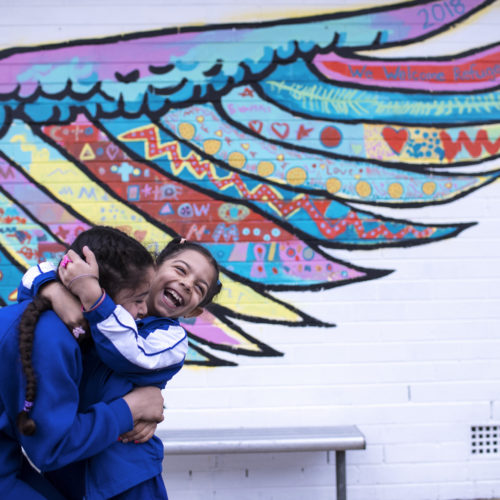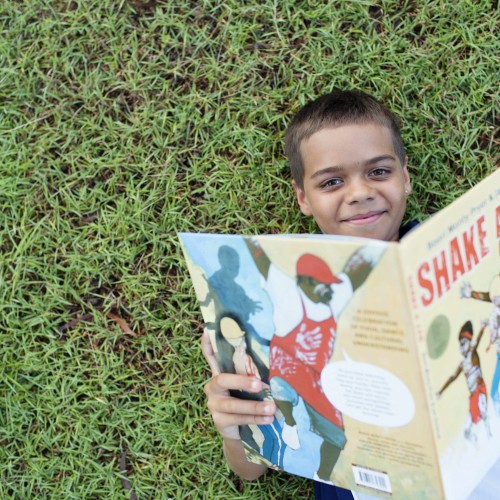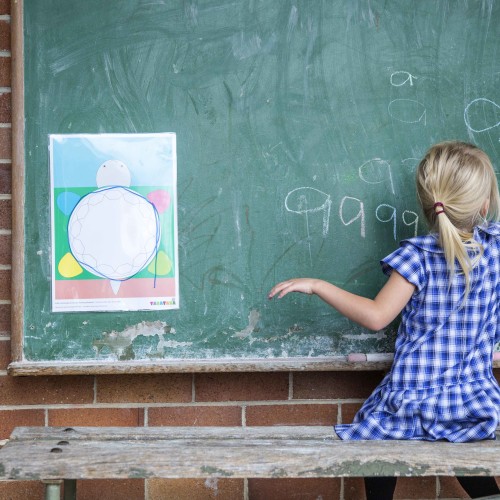The United Nations has declared an International Decade of Indigenous Languages!
The United Nations has announced an International Decade of Indigenous Languages from 2022 to 2032. The UN General Assembly adopted this resolution to “take urgent steps at the national and international levels” because, as AFN National Chief Perry Bellegarde so succinctly put it, “one year is simply not enough.”
ALNF is excited to be contributing to the important revival, maintenance and revitalisation of Indigenous First Languages through our award-winning work developing literacy resources and teaching strategies in a number of oral languages.
Making connections between Indigenous Australian First Language and English is vital for the development of personal and community health, welfare and education. First Language reading and writing instruction provides learners with the relevant and essential brain stimulation that can assist English language and literacy learning, retention and fluency.
ALNF provides a number of interrelated First Language programs and strategies that aim to firstly address instruction in First Language literacy, and secondly, assist in developing connections and comparisons to English language and literacy development.
The Living First Language platform preserves and revitalises Indigenous First Languages and turns them into dynamic, community-led and interactive digital literacy apps.
In Australia, First Languages are disappearing at a faster rate than anywhere in the world despite a universal acknowledgment that language plays a vital role in the health, wellbeing, education and future of Indigenous peoples. The Living First Language project harnesses technology in order to stem the tide of loss of First Languages and empower children to become learners in their Mother Tongues. ALNF’s technological solution offers a faster and more scalable means to efficiently and effectively capture and share languages.
Within Australia alone, 81,100 people identify as the speaker of an Indigenous language and 276,300 people who identify language as part of heritage. Globally, there are over 350 million Indigenous people across 90 countries worldwide. Yet, we can all benefit from this project, which will raise awareness of Indigenous languages and make them more accessible.
ALNF hopes that the impact of this initiative goes beyond preservation of Language, and that the platform serves to strengthen communities, bridge cultural divides, foster resilience, encourage literacy and put First Language back into community members’ hands.
INTERNATIONAL AWARDS AND RECOGNITION
We are thrilled that our work with the Living First Language platform has been recognised internationally on multiple occasions. To date, ALNF has been named as the winner at the 2020 United Nations World Summit Awards in Vienna in the category of ‘Culture and Tourism’, and has also won the GOLD Award at the prestigious Edison Awards in the ‘Social Innovation’ category as well as the ‘Empowerment Platforms’ subcategory. These wins come after the platform’s immense success in 2019, when ALNF won the prestigious Solve – MIT Challenge in New York in the category of ‘Early Childhood Development’ and took out first place in the ‘Innovation in Connecting People’ category at the South by Southwest (SXSW) Innovation Awards in Austin, Texas.
These awards are not only testament to the hard work of our team, but also to the diligence and determination of Indigenous communities who have taken ownership of this Platform and recognised its potential to revive First Languages. We are humbled and honoured to have received these awards and hope that, in doing so, we have shed some light on the importance of preserving and fostering Indigenous languages in Australia and beyond.
At the heart of the CALIL Program is the nationally accredited 11261NAT Certificate III in Coding Aboriginal Languages for Indigenous Literacy training course (delivered by ALNF through Ninti Training Limited (NTL), RTO 70018). The Program equips community participants with the skills to collect, categorise and convert oral First Language elements into effective reading and writing resources (see also Reading and Writing in First Language below).
To develop and refine the CALIL process, the ALNF collaborates with Indigenous elders who indicate the correct pronunciation of letter strings and words. To facilitate quick and accurate print pronunciation representation whilst reading, the ALNF and CALIL participants devise an accurate reading code for the local language(s).
By converting oral First Languages into reading and writing courses, the ALNF and local communities can provide community members with the teaching and learning skills and strategies that empower them to teach their own children to read and write in their First Languages.
Literacy in First Language(s) can also help children by giving them the skills to make comparisons and contrasts with English language and literacy.
“I am alive again. Listen! Language is life. You have given me language. You have given me life. I am alive again.” Warumungu Elder, NT.
Reading and Writing in First Language is perhaps best described as a method of decoding and encoding that teaches phonics, whole-word recognition and vocabulary through multisensory instruction.
The Reading and Writing in First Language Course uses First Language resources collected through the CALIL program. The course teaches adults how to teach others (both children and other adults) to read in First Language.
The course has a very practical, hands-on focus with emphasis on practicing the strategies, so that individuals can confidently work with others after the course has finished.
First Language Workshops are mini workshops designed to mentor and support First Language instructors by providing participants with strategies and resources that facilitate effective learning engagement and literacy acquisition.
These workshops assist participants in reviewing and expanding their repertoire of teaching and learning strategies and in developing additional resources for language stimulation and literacy skill development.
Please note that these programs are reading programs. Existing linguist and language worker documents that have previously recorded these languages are relied on in the development of reading resources.


